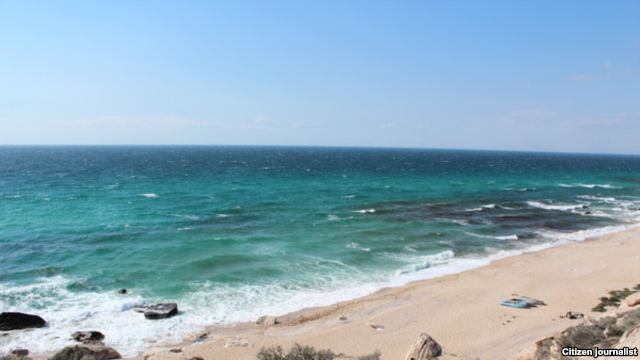Ashgabat discusses draft agreements on Caspian Sea

By Nigar Orujova
The Turkmen capital of Ashgabat hosted the regular meeting of the representatives of Caspian littoral states' fishery organizations on March 4.
The meeting was aimed at discussing a draft agreement on the conservation and rational use of the Caspian Sea's biological resources, Turkmen government reported.
The matter is included in the preparation of a regional document which aims at preserving the rich bio resources of the world and securing a consistent level of environmental management that meets the interests of the economy and ecology of each party.
The document will be signed by the Caspian states heads during the 4th Caspian Summit which will be held in the second half of 2014 in Astrakhan, Russia.
Emergency situation prevention
The Caspian Sea issues were also discussed by the authorized representatives of the Caspian countries -Azerbaijan, Russia, Kazakhstan, Iran, and Turkmenistan in Ashgabat on March 3.
At the meeting, the draft agreement on cooperation in preventing an emergency situation and dealing with the outcome on the Caspian Sea was debated, the Turkmen government reported.
Earlier, experts from the Caspian-littoral countries agreed on the specific points of the draft agreement after considering the proposals and comments of state bodies, and offered scientific, legal, and linguistic expertise, the statement said.
The draft agreement was initiated and developed by the Turkmen side.
Turkmenistan is also considering the creation of a new mechanism for environmental cooperation, such as international environmental dialogue over the Caspian Sea under the UN to utilize the efforts of the littoral countries.
The Caspian Sea, home to about 141 fish species, awaits a solution for its ecological problems.
The main fishery in the region, the sturgeon fishery, is operated only with the Caspian's resources. Some 90 percent of the popular black and red caviar sold all over the world comes from the Caspian Sea.
Experts believe that some of the causes of pollution in the Caspian Sea are as follows; the development of hydrocarbon reserves in the sea and surrounding areas, the high density of population and industry in the adjacent areas, intensive agricultural development in the valleys which have rivers flowing into them, the lack of a river to the sea which is an explicit geochemical barrier, and being a closed basin.
The legal status of the sea is still a matter of discussion between the littoral states.
While Azerbaijan, Kazakhstan, and Russia agreed on the delimitation of the sea in early 2000, other littoral states -Turkmenistan and Iran- have not reached a consensus yet.
Here we are to serve you with news right now. It does not cost much, but worth your attention.
Choose to support open, independent, quality journalism and subscribe on a monthly basis.
By subscribing to our online newspaper, you can have full digital access to all news, analysis, and much more.
You can also follow AzerNEWS on Twitter @AzerNewsAz or Facebook @AzerNewsNewspaper
Thank you!
